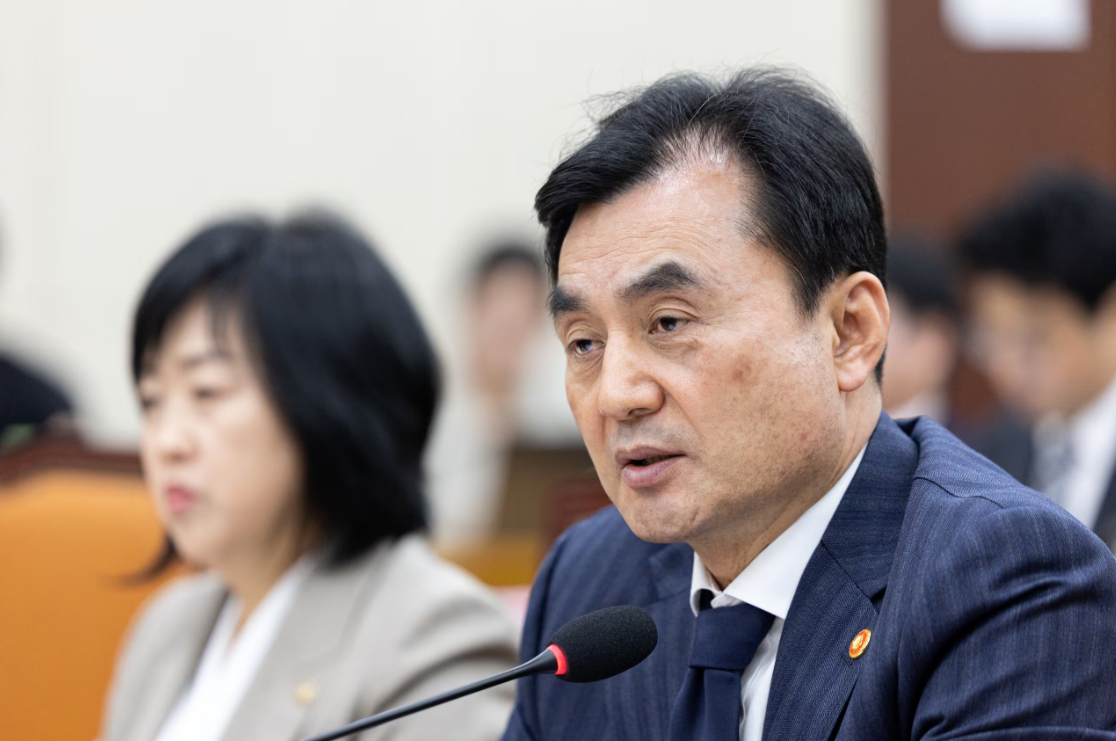According to ChosunBiz, the business news outlet of The Chosun Ilbo, Minister Ahn Gyu-baek of South Korean Ministry of National Defense said on the 5th that he has decided to call submarines that use nuclear fission energy as a power source “nuclear-powered submarines” rather than “nuclear-propulsion submarines.” He also noted that it would be preferable to build them domestically rather than in the United States.

Minister Ahn Gyu-baek said at the National Defense Committee’s full session at the National Assembly on the 5th, in response to a question from People Power Party lawmaker Yu Yong-weon asking, “Isn’t it right to build nuclear-propulsion submarines domestically?,” “I think it is appropriate because we have accumulated technology and conducted research for more than 30 years.” He added, “At present, we judge that the U.S. Philly Naval Shipyard lacks considerably in terms of technology, personnel, and facilities,” and said, “This is a matter that requires close consultation with government ministries.”
Minister Ahn went on to say that at the 57th Security Consultative Meeting (SCM) held the previous day (on the 4th) at the Ministry of National Defense building in Yongsan, there was no specific discussion on introducing nuclear-powered submarines. In response to a question on whether the plan to build at the Philly Naval Shipyard remains in effect, Minister Ahn said, “There was no discussion of that in the negotiations; only the overarching principles were discussed,” and added, “Nothing was said about which shipyard would build them.” Earlier, U.S. President Donald Trump on the 30th of last month approved Korea’s construction of nuclear-propulsion submarines and mentioned building them at the Philly Naval Shipyard.
Minister Ahn also announced that the official name would be “nuclear-powered submarine” instead of “nuclear-propulsion submarine.” To a question from Democratic Party of Korea lawmaker Jung Chung-rae asking, “You decided to introduce nuclear submarines, so did you decide to make the official name ‘nuclear-powered submarine’?,” he replied, “Yes.” He explained, “If you say ‘nuclear submarine,’ people might associate it with carrying nuclear bombs, and the international community could raise such issues,” adding, “This is to focus on peaceful use.”
To a question on whether the transfer of wartime operational control was also discussed at the SCM the previous day, Minister Ahn answered, “The Korean military’s leading capabilities were recognized, and there was considerable progress on that.” When asked, “Can the Full Mission Capability (FMC) verification be completed by 2029, within the Lee Jae-myung administration’s term?,” he said, “This requires a political judgment,” and added, “If more defense budget is invested and various conditions are formed, it could be done earlier, before then.”
Stating that the SCM joint statement is scheduled to be released after the joint fact sheet from the South Korea–U.S. summit comes out, Minister Ahn said, “Because of issues like nuclear-powered submarines and various agreements, coordination among multiple departments in the United States seems to have caused delays, but it looks like it will be over soon.”


